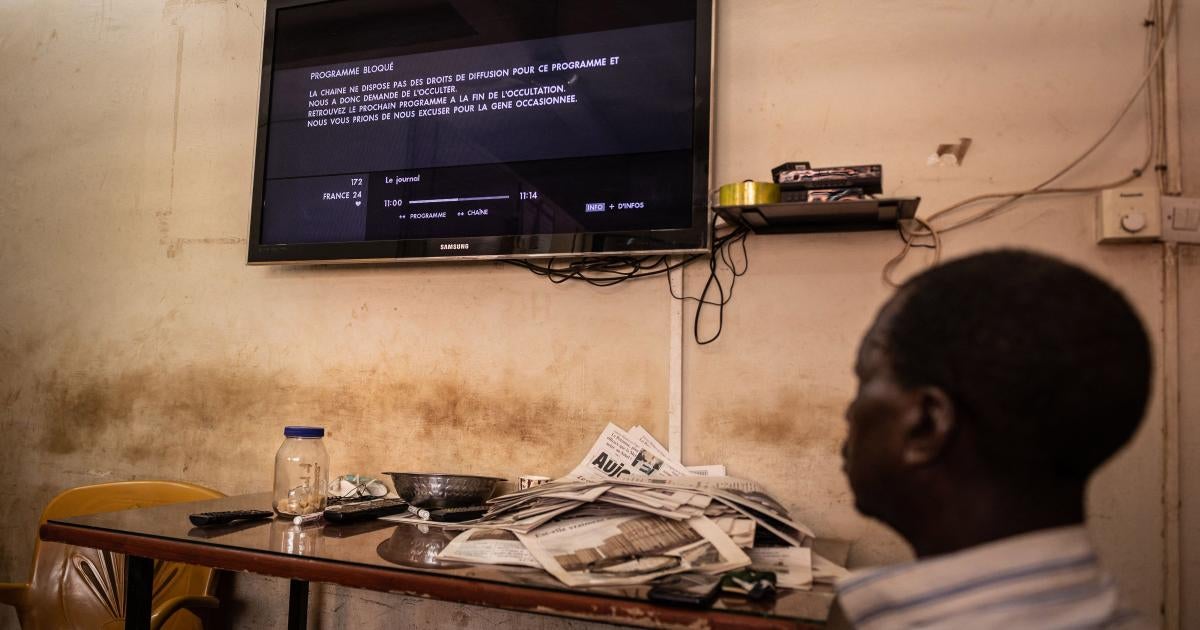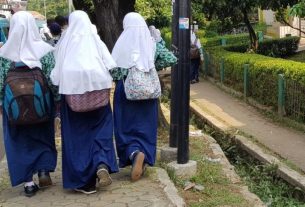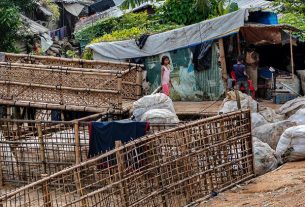(Nairobi) – The decision by Burkina Faso‘s transitional military government to suspend France 24 broadcasts violates the right to a free and independent media, Human Rights Watch said today. The government should immediately lift the suspension and allow the news channel to broadcast.
In a communiqué on March 27, 2023, Burkina Faso’s Communication Minister Rimtalba Jean Emmanuel Ouédraogo announced the suspension of France 24, a French international news television network, for airing an interview on March 6 with Abou Obeida Youssef al-Annabi, the self-proclaimed leader of the Islamist armed group Al-Qaeda in the Islamic Maghreb (AQIM). In the communiqué, Ouédraogo accused France 24 of “serving as a communication agency for these terrorists” and “legitimizing terrorist actions and hate speech.” France 24 issued a statement on March 27 rejecting “the baseless accusations that question the professionalism of the channel.”
“Burkinabé authorities should lift their France 24 broadcast ban and end further attempts to silence critical media,” said Mausi Segun, Africa director at Human Rights Watch. “The grave security situation in Burkina Faso should not be used as a pretext to curb the fundamental rights of the Burkinabé people to seek and access information through independent media outlets.”
Burkina Faso has been experiencing a surge in violence by Islamist armed groups. Attacks on civilians by armed groups allied to AQIM and the Islamic State in the Greater Sahara have increased since 2022, while state security forces and pro-government armed groups have conducted multiple abusive counterterrorism operations. The violence has forced 1.9 million people from their homes. The leaders of two consecutive military coups in 2022 cited the preceding government’s inability to address growing insecurity in the country.
The suspension of France 24 comes amid increasing attempts by the Burkinabé authorities to restrict the operations of independent media, as well as growing anti-French sentiment. On December 3, 2022, authorities suspended the French international radio news network Radio France Internationale (RFI) over what the Burkinabé government said were false reports giving voice to the leader of an armed group.
Mali’s transitional military government previously suspended RFI and France 24 broadcasts in March 2022.
The military government’s suspension of France 24 violates Burkina Faso law. A 2013 decree empowers the agency that regulates media operations, the Superior Council for Communication (Conseil supérieur de la communication, CSC), to determine whether to suspend or sanction a media outlet. “It’s up to the CSC to issue any sanctions to news media, not the government,” a Burkinabé human rights lawyer told Human Rights Watch. “The CSC is also supposed to provide advance notice for its decisions and all its final decisions may be appealed before competent courts.”
In another statement on March 27, Ouédraogo accused the French daily newspaper Libération of discrediting the Burkinabé armed forces following its investigation of a video allegedly filmed at a military base in Ouahigouya, Yatenga province, showing bodies of children on the ground with men at the scene wearing uniforms similar to Burkinabé military attire.
Several journalists told Human Rights Watch that “a climate of fear and oppression” characterized by a “combination of intimidation, harassment, and surveillance” by Burkinabé authorities makes their work difficult or impossible.
In a March 27 statement, Peter Stano, the European Union spokesperson, expressed concern over the suspension of France 24, saying, “the fight against terrorism is compatible with freedom of the press and freedom of information.”
The freedoms of opinion, the press, and the right to access information are guaranteed under article 8 of Burkina Faso’s amended 1991 constitution, and article 9 of the African Charter on Human and Peoples’ Rights (ACHPR). Under the ACHPR’s 2019 Declaration on Principles of Freedom of Expression and Access to Information in Africa, limitations to the exercise of these rights are only permissible if prescribed by law, serve a legitimate aim, and are necessary and proportionate.
Burkina Faso in 1999 ratified the International Covenant on Civil and Political Rights (ICCPR), whose article 19 protects the right to freedom of expression. The United Nations Human Rights Committee, the independent expert committee that authoritatively interprets the ICCPR, has stated that general bans on publications are never permissible unless specific content that is not severable can be legitimately prohibited.
“The recent attempts to weaken independent media call into question the Burkinabé military government’s avowed commitment to a transition to democratic rule,” Segun said. “The authorities should restore Burkina Faso’s media freedoms by immediately removing unlawful restrictions on free expression.”



